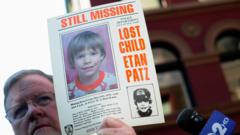Álvaro Uribe, the first former Colombian president to be convicted of a crime, faces a significant legal setback as his appeal is anticipated amidst political division and international commentary.
Twelve-Year House Arrest for Ex-Colombian President Álvaro Uribe

Twelve-Year House Arrest for Ex-Colombian President Álvaro Uribe
Former Colombian President Álvaro Uribe receives a 12-year house arrest sentence for witness tampering, marking a historic judicial milestone in Colombia.
Former Colombian president Álvaro Uribe has been sentenced to 12 years of house arrest after being found guilty of witness tampering and fraud, making him the first former president in Colombia's history to be convicted. The 73-year-old, who was in office from 2002 to 2010, has denied any wrongdoing and announced plans to appeal against both his conviction and the accusations asserting that his criminal trial was aimed at "destroying a voice for the democratic opposition."
Uribe’s conviction stems from a long-running 13-year witness-tampering investigation, during which two imprisoned former paramilitaries testified that Uribe's former lawyer, Diego Cadena, attempted to bribe them to give favorable testimony on behalf of Uribe. Cadena has also denied the allegations and provided testimonies supporting Uribe.
While Uribe remains a polarizing figure in Colombian politics, he retains significant popularity among some sections of the population, despite facing serious accusations. His hardline stance against left-wing groups, including the Farc, garnered praise from the U.S., but he has been criticized for not addressing the root causes of inequality and poverty in Colombia.
Reacting to the verdict, U.S. Secretary of State Marco Rubio condemned the ruling, claiming that Colombia's judiciary has been politicized against Uribe. Rubio expressed his belief that "the former president's only crime has been to tirelessly fight and defend his homeland" on social media platform X.
Uribe's era is characterized by the prevalence of paramilitary groups that emerged in the 1980s to counter leftist guerrilla movements in Colombia, particularly in regards to the cocaine trade, which has historically fueled violence in the country. While the Farc signed a peace deal with Uribe's successor in 2016, challenges persist in terms of violence perpetuated by disarmed factions still vying for power.



















